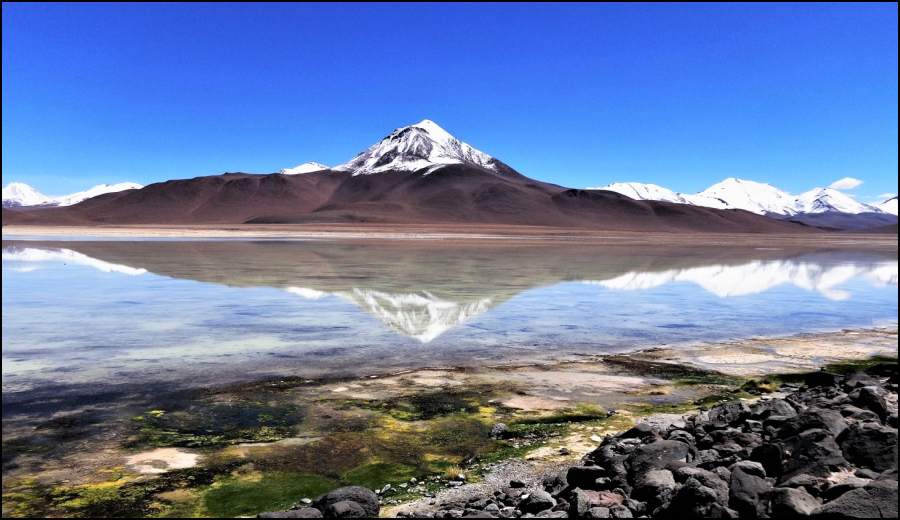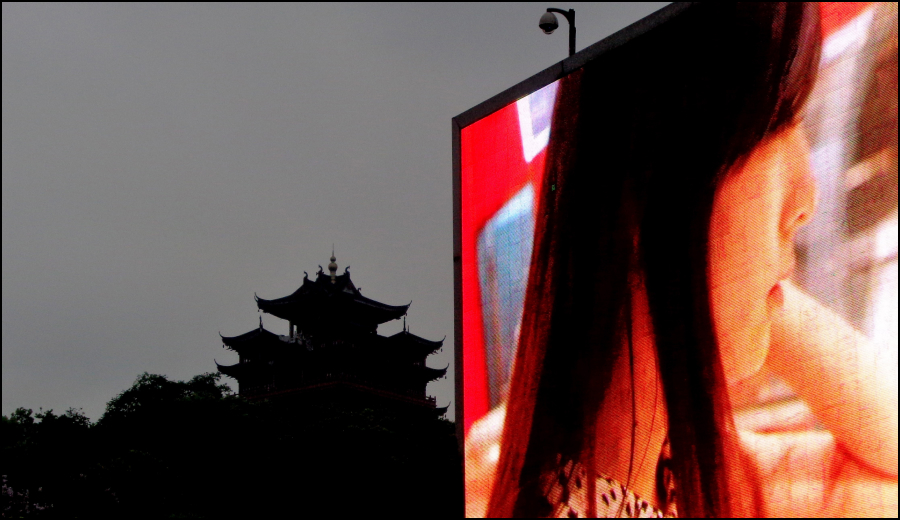Which of the three guiding themes are you most interested in? What exactly should an event be about which you would like to see organized? Join us in combining one guiding theme with one of the sections belonging to the subject areas.
The three Guiding Themes
Identity and Responsibility: who are we, who do we want to be?
It is difficult to avoid these questions if we want to seize opportunities and take on challenges in both our private and public lives. In decision making processes and actions, we are confronted with ourselves, a condition that allows for tackling the idea of identity from different perspectives and, moreover, to find out in what sense we are responsible for our identity. How can opportunities and challenges that are of public interest be integrated into our own lives?
Understanding and Criticism: a culture of debate
A culture of debate is more important than ever. In times of hate speech and digital echo chambers, there is need for awareness about standards of public communication and its role in functioning societies. Listening and understanding are the ground on which criticism and controversy take place. A meaningful discussion begins with the willingness to accept the possibility that one will be refuted or convinced by others. A culture of debate is not a mutual exchange of prejudices and ultimate truths, but a struggle for common ground in the light of recognized differences.
Self-thinking and Objectiveness: understanding and overcoming public thinking barriers
Free media contribute significantly to the progress of open societies. Public debate is one practice by which societies develop. This can also include understanding and overcoming public thinking barriers which are not least caused by the media themselves. What is tabooed? What is not talked about? What are people accused of when they speak out on topics that others think have long been clarified or are dominated by a majority opinion?
Short manual
We design specific events by combining one guiding theme with one section of the subject areas. Join us in doing so. It’s a little tricky, though. Just relating one title with another will not suffice. You need to interpret, if you will, and concretize the chosen guiding theme and section in a process of reciprocal interpretation. In the end, there is a title for the event that reflects the result of your approach.
Here is an example: If you want to combine the guiding theme “Understanding and Criticism” with the section “Conspiracy Theories and World Views,” you could come up with an event title like this: “Conspiracy Theories as a Threat to Democracy.” Whereas a culture of debate is an important aspect of democracy and implies the willingness to be refuted, such a willingness is not always given to supporters of conspiracy theories. For this reason, conspiracy theories are a threat to meaningful public debate and eventually to democracy.
We do not promise that we will be able to implement your event proposal. But since we invite experts to the events, many things are possible.
If you know which guiding theme and section you are interested in without already having a specific event in mind, we will be happy to find out the exact content in a joint discussion.

Life in the Digital Age
Artificial Intelligence, Freedom, and Responsibility in the Digital World (LA 1)
Digital spaces allow for new experiences, learning together, developing ideas, and opening up new horizons in life. And yet we must not ignore the dark sides of the digital world that can hardly be overlooked today. There is a rampant brutalization of language, which manifests itself in hatred, incitement, and calls for violence. In addition, there are enormous developments in the field of artificial intelligence, which in turn raise the question of how we can get a moral and legal grip on the digital world. How do we deal responsibly with our freedom in digital spaces and the use of artificial intelligence?
Conspiracy Theories and World Views (LA 2)
The internet is revolutionizing human life, most notably in the everyday life. One example is the extent to which we are offered ideologically driven attempts of explaining the world on social media. Conspiracy theories spread faster than before and reach more and more people. They might be entertaining for some. Yet they shape the world views of many people who are influenced by them on the political level or the way in which they view other people. Education today must therefore also mean providing knowledge and tools that allow us to identify conspiracy theories, understand their strategies, and to draw attention to their dangers in our social environment.
Science Communication and Sensationalism on YouTube (LA 3)
Many scientists are no longer afraid of the Internet. Some even use YouTube for their purposes, running their own chanel in the spirit of science communication. At the same time, other private providers exploit new scientific developments, sometimes sensationalistically. What consequences do these developments have for the public image of science? What opportunities and risks does the Internet hold for science communication? Particularly important for educational events is the question of what it means to deal critically with the new offerings.
Being Alone and Being Lonely (LA 4)
There is a difference between being lonely and being alone. Not everyone who is lonely is alone. And not everyone who is alone is necessarily lonely. In this perspective, being alone is not a bad thing, whereas being lonely seems oppressive. Should we therefore not only cultivate being together, but also being alone? In the digital age, there is the danger that people lose themselves in initially exciting digital worlds, yet end up experiencing loneliness in the midst of lots of likes. How do we deal with the seductive power of media presence and self-presentation, then?

Life on Planet Earth
Going back in Time: Science and Religion (LE 1)
While religions include creation stories, contemporary cosmology assumes that our universe came into existence around 13.8 billion years ago. The scientific explanation is by no means a global matter of course: many people trust the words of their religious doctrines. Should we see this as an aesthetic expression of human possibilities that are revealed in the context of thinking about origins? Or are science and religion at odds, challenging us to have a discussion about what is true?
Lost in the Vastness of Space? (LE 2)
In our own galaxy, the Milky Way, there are at least one hundred billion suns. Most of them, if not all, are probably orbited by one or more planets. The closest solar system to us is roughly 4 light years away, i.e., the light from there takes 4 years to reach us. We humans, on the other hand, would need tens of thousands of years with today’s technology to bridge the distance. Our galaxy has a diameter of around 100,000 light years, which doesn’t make traveling any easier. And most of the billions of other galaxies are millions and billions of light years away from our own galaxy. In this perspective, the planet on which we live appears to be lost in the vastness of space. But is this really the only perspective?
NASA and a New Scientific Problem? (LE 3)
In a NASA report released in 2023, unidentified anomalous phenomena (UAP) are called “one of our planet’s greatest mysteries.” Reports on objects with at least unusual characteristics can be found throughout history. However, investigations started only in the middle of the twentieth century, most of which were undertaken by military institutions and private research groups. In the present, there is a growing interest among scientists. The topic allows for a variety of scientific perspectives and approaches. However, it can also be an exciting subject in educational events. For example, social problems that accompany the topic, such as conspiracy theories, could be dealt with.
Climate Change and the Future of Planet Earth (LE 4)
There have always been significant changes to temperature and climate in the history of Planet Earth. The current climate change is therefore nothing new from a geological point of view. What is new, however, is that humans bear responsibility for climate change. Over the course of two centuries, the use of fossil fuels has reached a level by which the consequences for our climate can be measured and experienced. Temperatures are rising, polar ice sheets, and glaciers are melting, the oceans are warming, hurricanes are becoming more frequent and powerful, regions are undergoing desertification, rates of extinction are on the increase, and mankind is threatened in an unprecedented way. There are, then, many reasons to make climate change the subject of discussion.

Life in a globalized World
Heimat (homeland) (LW 1)
Being very German, the term Heimat stands for familiarity and cultural identity. It tells us that people find the reality of their lives in certain regions to which they feel connected. To critics, the need for Heimat is the emotional world of the provinces or even the basis for nationalist ideology. In the eyes of others, it is just the harmless desire to be at home somewhere – an attitude to life and cultural identity that allows people to be content and happy in one place. Still others believe that Heimat and cosmopolitanism are not mutually exclusive. So what is Heimat? Or do we not even need to talk about it given that it is only the word that seems problematic, not the subject matter?
Culture (LW 2)
People live on continents in countries, cities, and villages. But we also live in nature, although we may not agree on what this means. And what about culture? Does it make sense to talk about living in a culture? Or can we only live in countries, cities, villages or in nature? As is so often the case, language is of particular importance. We can defuse many of the politically charged debates about culture if we consider the various possible meanings of the term “culture” and understand that cultural identity can be of very different kinds and does not necessarily have to be accompanied by mechanisms of exclusion and judgment.
Migration (LW 3)
Hardly any other political topic is currently more under debate than migration. In its own way, migration is a symptom of globalization. People leave their countries of origin for a variety of reasons. Some seek a better life elsewhere, others flee to save their own lives. How do we deal with this challenge? Should moral attitudes guide our actions? Or should we respect limits? Whatever the answer to these questions, it is clear that we as citizens are all called upon to deal with the issue openly and fairly in public. For politics is basically a reaction to how people act and think on those questions.
We in a Globalized World (LW 4)
Despite all the challenges and problems, globalization is still a promise. It stands for development and is a reality of modern societies that are economically intertwined. In a globalized world, however, there are also individuals who are provided new, sometimes unimagined possibilities for identification and movement. In this sense, a globalized world is also a space of possibilities in which we are not solely dependent on what is available locally. And yet the question arises as to whether such freedom can be overwhelming, finally leading to a retreat into the familiar. What does it mean, then, to live in a globalized world?